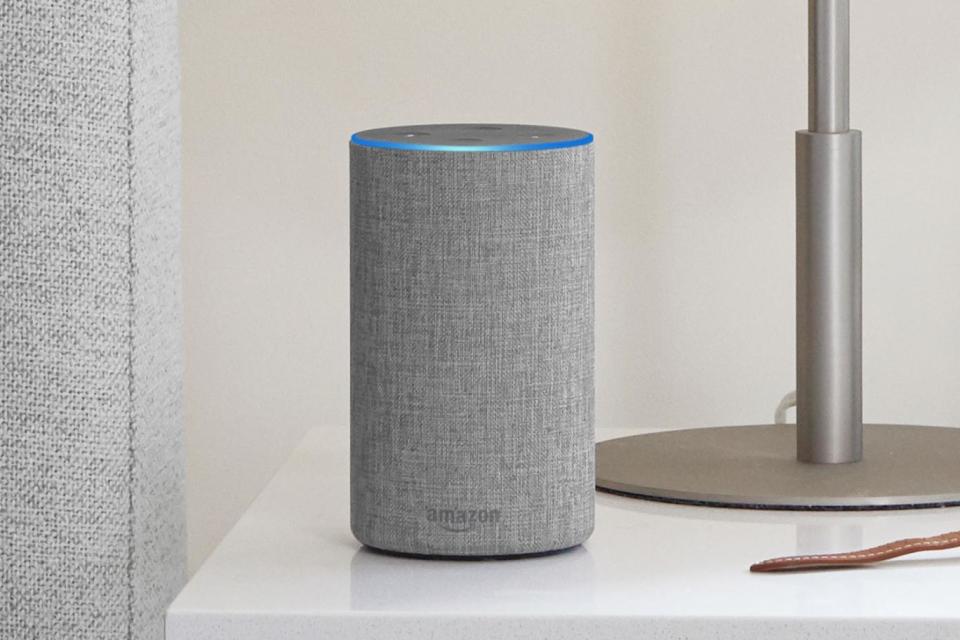'We're only just beginning to understand the remarkable benefits of tech'

We hear a lot about the ills of technology. We’re too plugged in. We don’t switch off. We’ll soon be outsmarted.
Equally important is to recognise technology as a force for good.
New and emerging technologies are delivering remarkable benefits, but especially for those with disabilities. From helping people with hearing impairments to enjoy the theatre, to supporting blind employees in the workplace, technology is breaking boundaries and driving increased accessibility for all.
Organisations, public and private, are waking up to this potential and starting to innovate.
Charities are seeing new ways to help the communities they are set up to support. Businesses are exploring opportunities to engage those customers and colleagues who face challenges in their day to day lives.
More and more are investing in technological solutions, several moving from experimentation to piloting them in the real world. We are proud to have worked with many of them.
So how is technology already making a difference?
Helping hearing impaired patrons enjoy the theatre
The National Theatre is the first to make a digital difference by using augmented reality (AR) to improve the theatre experience for patrons with hearing impairments.
Data from Action on Hearing Loss and the Arts Council suggested there are around 900,000 hearing-impaired people across the UK who would like to engage with the arts, but less than 5,000 felt comfortable to attend a performance. Digital is changing this situation by making the experience more accessible for all.
We worked with the National Theatre to pilot a new experience for patrons, that harnesses the combined power of AR, speech-following software and its own audio description service.

Delivered on the latest Epson smart glasses, the technology will allow theatre-goers to see captions during the performance, on the glasses, all synced to the actors’ voices. Imagine the captions are viewed on TV, only with the atmosphere of a live theatre performance, and you will have an idea of what it is like to experience.
With the glasses, those who are hearing impaired can experience the theatre without barriers from any seat in the auditorium. This technology is being tested at the moment in live performances of selected productions.
The intention is to launch fully later this year.
Supporting visually-impaired colleagues at work
There are also examples of technology in the workplace encouraging inclusion. Drishti uses artificial intelligence (AI) to help people with visual impairments experience the world around them and navigate the workplace.
We developed this smartphone-based technology in partnership with the National Association for the Blind in India.
Powered by AI, it uses image recognition, natural language processing, and natural language generation capabilities, to bring to life a person’s environment through a description of their surroundings.
It can tell you the number of people in a room, and identify their age, gender, and emotions based on facial expressions. It can also be used to narrate text from books and documents and recognise currency.
The project, which started as a trial with over 100 of our own visually impaired employees in India, is now being piloted in our offices in South Africa and Argentina. Hopefully, in the not-too-distant future, we will see the rollout of this type of technology which will have a positive impact on the lives of those in the visually impaired community.
Helping seniors to manage care and loneliness
Digital isn’t just helping those with disabilities; it can also support older people in their homes. With an ageing population and demands on the care system intensifying, it can play a significant role in supporting families and carers, as well as improving the independence of the elderly.
We recently finished work on a pilot programme that uses artificial intelligence and voice-powered Amazon Echo technology to help older people manage their care and well-being. With the help of Age UK London, we identified the more common challenges of everyday life for older people – from setting daily reminders to the heartache of loneliness – and created a simple solution to help tackle them.
The technology can learn behaviours and preferences and suggest activities to support physical and mental health. It can provide better access to reading and learning materials, music, daily exercises, appointment reminders.
And it includes a portal that lets family members and caregivers check whether loved ones have taken their medication or made new requests for care.
Age UK reports that 200,000 older people in the UK are going a month or more without having a conversation with friends or family. With the senior population growing fast in the UK, using technology to help and support the older community will only become more vital.

Looking to the future
Technology clearly has huge potential to make positive impacts in society. There are powerful examples of how businesses are already working to adopt advanced and emerging technologies to help solve challenges faced by those who are vulnerable or disabled.
And what we are seeing now is just the tip of the iceberg. The extent to which technology can change lives for the better is profound.
It is now for us to use technology to push the boundaries of what is possible.
George Marcotte is the managing director of Accenture Digital

 Yahoo News
Yahoo News 
